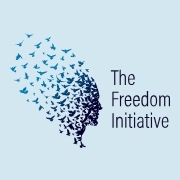(Beirut, February 28, 2023) – The Egyptian authorities should increase transparency by making essential figures about the country’s detainee population public, nine organizations said today. The figure should include how many people have been kept in custody in recent years under the nationwide crackdown on dissent.
The Egyptian Interior Ministry’s Prisons Authority last released periodic figures on prisoners in the 1990s. In recent years, senior officials, including President Abdel Fattah al-Sisi, have repeatedly refused to answer journalists’ questions about the detainee population. Human rights groups believe that under President al-Sisi, the detainee population has grown dramatically as authorities have arrested tens of thousands of perceived or actual dissidents since late 2013. The crackdown has led to dangerous overcrowding in detention centers and further undermined their already-inhumane conditions.
“The Egyptian government withholds information on the detainee population as if it’s a state secret, but Egyptians have a right to know how many people their government is detaining and how they are treating them,” said Amr Magdi, senior Middle East and North Africa researcher at Human Rights Watch. “Lack of transparent figures on the prison population deprives civil society from fundamental tools to assess the effectiveness of the penal system and monitor prison conditions and other vital human rights issues.”
The Egyptian authorities should create an online database accessible to families of detainees to easily locate where their relatives are being held, to locate when and where they are moved, and to retrieve information on their medical condition and legal status, the organizations said. The authorities should also allow independent groups to visit detention sites, establish an independent authority to monitor prisons and investigate allegations of ill-treatment, and transfer prison administration from the Interior Ministry to the Justice Ministry.
In recent years, the Egyptian authorities have frequently published videos and other promotional materials about new detention facilities, depicting an overly rosy picture of the treatment of prisoners, while shielding all detention places from independent scrutiny by journalists and nongovernment groups. Judges and prosecutors routinely fail to conduct prison visits and release transparent statements about the conditions.
Apart from a few military prisons under the Defense Ministry, all official prisons in Egypt are administered by the Interior Ministry, under its Prisons Authority or security directorates or other departments. However, thousands of prisoners are also held in police stations as well as many unofficial and secret detention sites run by the abusive National Security Agency.
According to a research paper by the Arab Reform Initiative, a Paris-based research center, the Egyptian government built dozens of new prisons between 2013 and 2021, including at least 7 new prisons under the Prison Authority, raising the number of prisons it administers to 49. About three dozen more prisons were reportedly built under other departments (particularly the security directorates) of the Interior Ministry, raising the total number of official detention facilities by 2021 to around 168, excluding police stations. Media have reported that many of the new prisons were built after awarding opaque construction contracts that in one case was around one billion Egyptian pounds (US$140 million in 2013 and 2014).
In 2013, before the new prisons were built, the assistant interior minister for the Prison Authority said that the 44 prisons under his authority could hold up to 75,000 people. Some of the new prisons built are in the new Wadi al-Natrun prison complex, 100 kilometers northwest of Cairo, which opened in October 2021. President al-Sisi said it was the largest prison complex ever constructed in Egypt and described it as “fully built copying an American model.” Egyptian media claimed it was one of the biggest in the world, though the authorities did not reveal the construction cost or its total capacity; Egypt’s National Commission for Human Rights said in 2022 that the complex could hold over 20,000 people.
While the Egyptian government does not reveal any meaningful figures on the detainee population, some officials have given partial statements and estimates. In 2019 and 2020, officials claimed that they released or conditionally released tens of thousands of prisoners, such as those jailed for failing to repay loans. In 2017, Alaa Abed, then-chairman of parliament’s human rights committee, said in a parliamentary meeting that half of the prisoners in Egypt were in pretrial detention, meaning they had not been sentenced by any judge.
The co-signing organizations sent a letter with detailed questions about Egypt’s detainee population on December 15, 2022, and January 19, 2023, to the Interior Ministry, the Office of the Prosecutor General, and the National Council for Human Rights, but received no response. The organizations asked the authorities to provide information about the total number of the detainees in prisons and other detention facilities such as police stations, immigration facilities, and hospitals as well as a breakdown of those numbers by gender, age, and those with convictions versus those in pretrial custody.
The organizations also asked how many people were in detention over offenses related to peacefully exercising constitutional rights and offenses related to political violence. The groups also requested the numbers and types of detention facilities and their capacities. Without transparency and public information, it is impossible to conduct comprehensive human rights assessments of prison conditions or conduct social science research around crime, the study of recidivism, the economic and social costs of incarceration, ways to combat and reduce crime rates, and the impact on women and children, the organizations said. Such independent research is necessary to address issues including prolonged pretrial detention, overcrowding, and the management of public funds for both building and managing prisons.
The government has closed down some of the decades-old prisons such as several in the infamous Tora prison complex after building new ones, but prominent pro-government TV presenters have said that the government’s primary motivation was to sell the land to investors given its proximity to the Nile.
Under President al-Sisi, the authorities have extensively used pretrial detention, particularly in politicized cases, to keep tens of thousands of people in jail without trial. Even some pro-government figures have occasionally expressed concern. “Overcrowding in prisons depicts the government as if it is repressing freedoms and it consumes part of the state budget. Between 10 to 20 billion pounds can be saved annually,” said Abed, the former chairman of the parliament’s human rights committee.
International and African laws require authorities to use pretrial detention as an exceptional measure, and only when demonstrably necessary for specific reasons, including risk of flight and threats to witnesses, and for the shortest time possible.
Systematic abuses of prisoners’ rights have been extensively documented in Egypt’s new and old prisons. Common complaints in many prisons, for example, include the absence of sufficient natural light to work or read, the lack of humane sleeping and sanitation arrangements, lack of climate control, as well as inadequate floor space and proper ventilation, all of which violate the basic rights of prisoners as codified in the United Nations Standard Minimum Rules for the Treatment of Prisoners (Mandela Rules).
Prison authorities routinely deprive inmates of access to education, adequate health care, and visits by families and lawyers. Independent UN experts warned in 2019 that thousands of prisoners in Egypt are at risk.
The right to access information is guaranteed under international human rights law. This includes the obligation to disclose information as well as publicize and disseminate key information of significance to the public. Exceptions to the right to access information should be narrow and subject to strict harm and public interest tests.
The Mandela Rules provide that both internal and external inspections of prisons should be conducted regularly, in which inspectors should have the authority to make unannounced inspections and to, “access all information on the numbers of prisoners and places and locations of detention,” as well as all information relevant to detention conditions. The Mandela Rules also require production of written reports with the findings from such inspections and making the reports public and available, excluding personal details.
“The Egyptian government punishes prisoners, their relatives, and all of Egyptian society by depriving the public of information about those in custody,” Magdi said. “Egyptians have the right to ask and receive clear and comprehensive answers.”
The organizations are:
1) Association for Freedom of Thought and Expression (AFTE)
2) Committee for Justice (CFJ)
3) Democracy for the Arab World Now (DAWN)
4) Egyptian Front for Human Rights (EFHR)
5) Egyptian Human Rights Forum ( EHRF)
6) EgyptWide – Egyptian Italian Initiative for Rights and Freedoms
7) Human Rights Watch
8) Sinai Foundation For Human Rights (SFHR)
9) The Freedom Initiative


